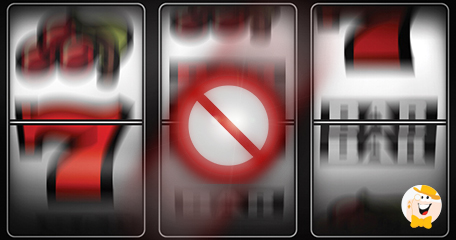
While many people have discussed the various errors and problems with payouts that have taken place through the years at various online casinos, one aspect that is often ignored is that such situations are not necessarily unique to them. As it turns out, while most machines have posted on them something to the effect of, ‘Machine malfunction voids all pays and plays,’ or alternatively, that or similar verbiage is present on the Rules screen for the game, there can be no doubt that it exists for a reason.
In fact, I wrote an Article for our sister site, Wizard of Vegas, about just this thing a little over a year ago, so feel free to check that out if you like.
I don’t want to get into too many of the details here, so I am going to sum it up. Veronica Castillo was playing at the Lucky Eagle Casino in Washington State and was overjoyed when she believed that she had won over 8.5 million dollars on a nickel denomination machine. The reason that she thought that, of course, is because that is how much the machine told her that she had won. That obviously had to be a mistake, anyone could look at the top line pay of the game and clearly see that it was simply not possible to win that sort of an amount on that particular device. In fact, I do not believe that I have ever seen a nickel machine of any kind upon which such a win would be possible.

Just last month, Katrina Bookman of Queens, New York:
Was playing at the Resorts World Casino and thought that she had won a jackpot of nearly forty-three million dollars when that amount first appeared on the screen followed by a message that a cashout ticket was being printed for that amount. In that particular case, the maximum payout of the machine is actually known to be $6,500, so there is definitely no way possible that Ms. Bookman could have won that amount.
Furthermore, for any hit of $1,200, or more, the machine would never display a message (in the United States at a commercial casino) that a cashout ticket was being printed out, because that would be a handpay that, ‘Locks up,’ the machine until a slot attendant comes and clears it while having a W-2G form filled out. Handpays are paid either by cash or check, a W-2G must be filled out in order for an individual to collect his/her winnings, and the machine would not print a cashout ticket of any kind, even for the amount of cash that was on the machine prior to the handpay taking place. No more spins can be made, no amount of money can be cashed out by ticket, the only possible way to get the machine to do anything is for the slot attendant to come and unlock it.
We are not here today to discuss whether or not those slot machines actually paid out 8.5 million dollars and over forty million dollars, respectively, we are here to discuss what the responsibility of the casino is and how the casino should handle these sorts of malfunctions.
How Should it be Handled?
The two casinos in question handled the matter in somewhat different ways. The Lucky Eagle casino decided to send Ms. Castillo a check for $80 whereas the Resorts World Casino decided that Ms. Bookman was entitled to exactly nothing, but they offered her a steak dinner, anyway.
Without a doubt, it is the responsibility of the casino to ensure that all of their machines are functioning properly, as well as it is the responsibility of any gaming regulatory authority and any other testing body to do the same. However, this is usually with respect to ensuring that the games are sufficiently random and that they actually return, in the long run, the amount that they are purported to return. It’s really quite difficult to account for a, ‘Glitch,’ of this nature because it could theoretically require millions of actual plays for such a glitch to actually happen. In other words, the glitch might only show up long after however many plays for which a machine should even reasonably be tested.
Of course, it is the goal and the responsibility of these different agencies and companies, not to mention the manufacturer, to ensure that these glitches are as rare as possible. The question then becomes: What should a player rightfully be entitled to if such a glitch does happen?
Before we answer that question, however, let’s take a look at errors that may happen in the casino that actually go against the player, but like these slot machine glitches are technically ther faults of the manufacturer, the casino and the regulatory body, are technically the fault of the player.
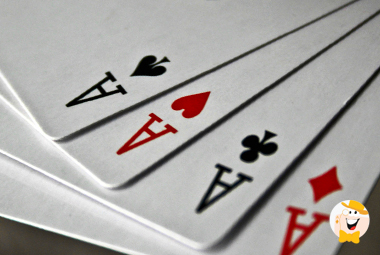
The best example for this that I can think of is on a game such as Video Poker, a game upon which the player’s decisions matter and can dramatically affect a player’s value on a given hand. Using this hand analyzer.
And a really extreme example, I am going to look at the default paytable for Double Double Bonus for which the second best possible hand is four Aces with a Kicker that is a 2, 3 or 4. If the player is dealt Three Aces and then an inconsequential seven and six, by far the best hold is to keep the three Aces thereby giving the player the possibility of Four Aces or even Four Aces with a Kicker. That hold is worth 12.711378 units. A much worse hold would be only holding two of the Aces, which is worth 1.172803 units and, of course, makes a four-of-a-kind impossible.
What if the casino provides the player with sub-optimal equipment, say one of the buttons is extremely finicky, though technically works, it’s just that the player really has to slam the button to get that card to hold. The player is aware of this fact, but in his/her excitement of being dealt a starting hand of three aces, the player does not slam the button quite hard enough, only ends up holding two of the aces, and then draws. On a dollar denomination game, this mistake would have cost the player in excess of $50 in theoretical value. It’ll probably be even more sickening for that player if the ace pops up as the first or second card to come out!!!
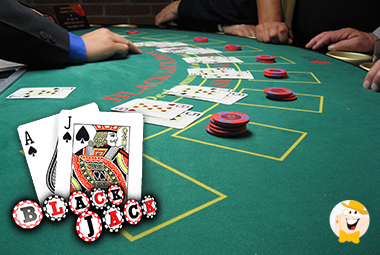
There are other examples still, such as on Table Games. Imagine that a player is playing Blackjack and has to make a decision about whether to double or whether to hit, and this could be a situation in which many players would just take the hit. For instance, it could be a player total of eight v. a dealer showing five on a single-deck game in which the proper decision for the player is to Double Down, but the player mistakenly calls for a hit. When it comes to more obvious Blackjack errors (such as hitting on 19, or something along those lines) the casino might occasionally be willing to correct it if the dealer calls the floor person over on a hand that the player may have pushed or won, but when it comes to something like not doubling an eight against a dealer five, the casino probably isn’t going to do anything for you.
There are numerous other examples of a player losing value due to either a temporary lapse in concentration, or again, due to equipment that is technically functional but has some serious flaws. I remember once instance of a parlor machine game in which a player hits a bonus game in which the player is presented with different prizes (up to three times) and then chooses whether or not he/she wants to keep the prize or try for something else. On one occasion, the player accidentally kept the second lowest possible prize on the first try, which is naturally a terrible decision. I am not going to pretend to know when the best situation to keep the prize is, the game cannot ever be played at an advantage, so I don’t really care, but that was definitely NOT the optimal decision.
In any event, the player decided to summon the individual who was working at the parlor over to explain what happened, which was actually due to the, ‘Keep,’ button being sticky (at least, so claimed the player) and the person working said that there was no way to reverse it. He said that even if he wanted to do something for the lady, that there was simply no way to do so.
I had a similar embarrassing incident happen to me once whilst playing Video Poker, but I felt that I noticed it before my decision had been finalized. I had ended up with a Wild Royal Flush on Deuces Wild, which is the third best possible hand, and I was playing using the screen due to the buttons being sticky. In any event, I must not have hit the, ‘Draw,’ button on the screen for the next hand as I thought I had (the screen buttons were a little off) and for some reason, the machine decided that I wanted to Double Down.
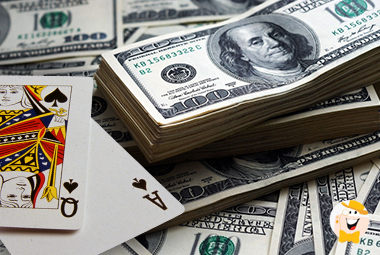
I had no desire to Double Down, and in fact, the camera could prove that I had been playing for quite some time and had not yet doubled down at any point. I called the attendant over (prior to picking my double down card) and explained the situation and that I never wanted to double down in the first place, what I really wanted was just to play the next hand. I got the same response, there was nothing he could do about it, even if he wanted to, so I would just have to take my chances and pick a card. I lost, of course.
Anyway, I’m all done with discussing situations in which this could theoretically happen, or even situations in which I have witnessed it happen, otherwise this entire Editorial will end up being two hours of reading with me regaling you with sob stories of things players unintentionally did!
The fact is that it is hardly unusual for faulty equipment to work in a way that is detrimental for the player, or at least equipment that is performing sub-optimally, and the player often has limited or no recourse when such things happen. The player can also make mistakes and it is the player’s own money that has been negatively affected, a machine malfunction might void pays and plays, but a player malfunction does not!
It is for that reason that I maintain that these two women, and any others similarly situated, are probably entitled to something, so let’s discuss what the options are:
Millions of Dollars:
Some people might take the position that these individuals are actually entitled to millions of dollars because, in spite of the, ‘Malfunction voids all pays and plays verbiage,’ the machine still told them that they are entitled to millions of dollars. I consider this position to be completely ridiculous for a number of reasons:
The first reason that the position is ridiculous is that, based on the amount being bet and the machine being played, the millions of dollars in question are simply not possible results. How could a player be entitled to something that the machine could not even possibly do? In the second case, we are actually aware of the precise maximum jackpot that the machine is capable of, even if the player had hit for the best possible result, so how could the player have ever possibly won more than that?
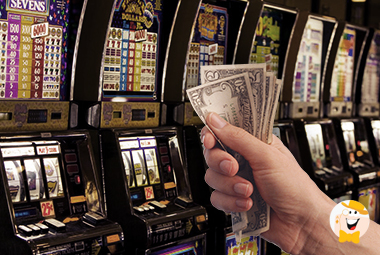
Furthermore, I would suggest that for either of these players to say that they actually truly believed they had won those amounts would either mean that they are not terribly intelligent people, or alternatively, that they are simply not making a genuine claim. How could someone betting two dollars, or whatever it was, actually believe that they had won over forty million dollars on that bet? There are very few machines that even have a maximum jackpot of anything even approaching that. In fact, the MegaBucks jackpot in Las Vegas is the only one that has been hit at any amount in excess of ten million in the last several years...and that’s the entire angle of that particular machine: Huge jackpots!
It is with that I conclude that these people are absolutely not entitled to millions and millions of dollars given the malfunction of the equipment, and to advance any argument to the contrary is absurd.
The Maximum Pay on the Machine:
While we can definitely assert that the player is not entitled to millions upon millions of dollars for the machine malfunction, a more reasonable argument is that the player should be entitled to the maximum pay on the machine given the error. While this argument is a bit more reasonable, I still don’t think it is a good one.
The reason that I disagree with this argument is because the result of the spin is probably not one that would yield the maximum possible jackpot. Granted, if the result of the actual spin would otherwise yield the maximum possible jackpot, and the machines screws up and says it should be more than that, then the player should rightfully be entitled to the jackpot. However, it does not appear that such was the case in either of these instances.
However, it would definitely look good on the casino to offer the player the maximum possible jackpot that the machine could even theoretically yield by means of resolution, and the player would be nothing short of foolish to refuse. In the latter of the two cases, Ms. Bookman’s attorney suggests that is precisely what she should be awarded, but if a lawsuit is filed, it is quite probable that the matter will be settled for a lesser undisclosed amount. Depending on how much the maximum jackpot actually is, and the financial state of the casino, this might actually be a pretty good offer for some positive publicity compared to, ‘Player thinks she won forty-five million dollars and gets nothing.’ This is especially the case because these kinds of malfunctions seem to be exceedingly rare, so it is not something the casino would have to do very often.
In terms of the actual right to that amount of money, however, I do not believe the player has a fundamental right to that amount of money unless that is the result of the actual spin. I don’t think the casino should be able to avoid the actual result on the reels simply because the machine decided to pay the player the wrong amount. Any casino that did that would definitely not have my business, and shouldn’t have yours, either.
Nothing:
In the strictest sense of what is stated on the machine, “Malfunction voids all pays and plays,” it would mean just that. The player is not entitled to any winnings, but is, however, entitled to the amount that he or she bet back.
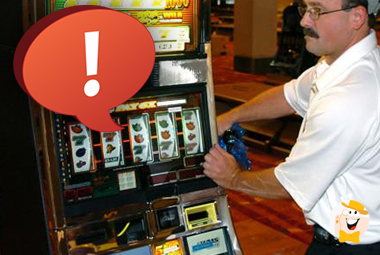
Many people would suggest that this is the fairest resolution, particularly in the event that the actual result on the reels would have been a losing spin, but I actually tend to disagree with that. The main reason for my disagreement is that, while a player would probably be ungenuine to suggest that he/she believed he/she had won millions of dollars, it is certainly reasonable for the player to believe that he/she had won something. If the player reasonably believes that he/she must have won something as a result of the malfunction, then the casino should give the player something. The casino certainly makes money on what I will term, ‘Player malfunctions,’ all the time, and they don’t seem to have any trouble with keeping that money.
Furthermore, these types of events are actually disruptive for the player, in the event that the player did not actually win anything. The player is busily enjoying the machine and then, all of a sudden, the player has to wait for an attendant to come and sort out whatever the problem with the machine is. While I would not suggest that the casino should have some means of compensation every time a player is negatively affected by a machine error, one example would be stuck tickets, I would suggest that this is a case in which the casino should payout something as they are depriving the player of his/her right to enjoy the machine. If nothing else, the player should be adequately compensated for the time that he/she had to wait as a result of the malfunction as well as the time it takes for the player to be paid whatever amount of credits he/she actually had on the machine.
For the player to be compensated nothing just doesn’t seem quite right to me as the player’s enjoyment of the machine was compromised by the temporary inability of the machine to function correctly. The player should be able to enjoy the machine with the expectation that it will function properly throughout the entire player’s duration of play.
Something in the Middle:
I would suggest that the casino should offer the player something in the middle of nothing and what the best possible result of the machine could be, again assuming that the reels do not actually display the best possible result. I’m not sure how much a player could get in court as a result of something like this, as I am not aware of any cases in this regard that have actually been settled or decided by a jury, but I think the casino should make every effort to reach a resolution that is mutually agreeable. I also think that it would be good publicity for the casino to have a machine malfunction, but have the result be an extremely happy player who speaks positively about the establishment. It would probably be worth taking a hit for a few hundred or even a thousand dollars.
Also, if the result of the spin on the reels would have been some kind of win otherwise, then the player should definitely be entitled to at least that amount, and I would argue a little bit more. For instance, if the result of a spin would have otherwise been a $40 win, then it is going to look terrible on a casino to refuse to pay that out because the machine decided to display the wrong credit amount won. Again, I do believe the player should be compensated a little extra for the trouble, after all, the casino makes plenty of money on player errors.
The Two Casinos in Question:
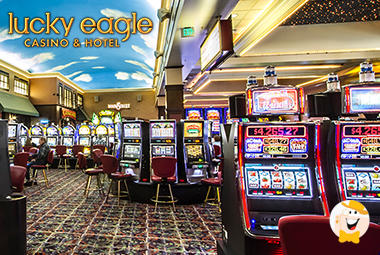
The Lucky Eagle Casino, apparently, decided to send Ms. Castillo a check for $80, which I think is somewhat reasonable, but that she was reportedly unhappy with. Given her statement to the press, she seems to actually believe that she won over eight million bucks, either that, or she’s putting on a pretty convincing act. In my opinion, if Ms. Castillo’s spin actually would have won nothing, or some amount under $80, I think the casino gave her a reasonably good offer and that she might eventually come around to appreciate that on what was clearly a malfunction.
When it comes to Resorts World Casino offering that person a steak dinner for her trouble, if it were me, I would have been likely to respond with my middle finger. She had to go to all the trouble of leaving the casino and coming back the next day while management sorted the whole ordeal out, and for the trouble of her leaving and having to return, they offered her a steak dinner. I’m not necessarily suggesting that they had to offer her the house, but certainly a steak dinner and $100 in Free Play would have been a reasonable offer. After all, she had to spend time, and probably money in one way or another, coming back.
Personally, I think that just makes Resorts World come off as cheap, and if anyone else perceives them that way, including Ms. Bookman, I think it is well-deserved. You can’t just tell someone, ‘Give us a day to sort this out and come back tomorrow,’ and then not give them anything. In addition to the negative press, I should believe that it is also likely that Ms. Bookman herself will not be returning to the casino and will strongly encourage her friends to avoid it, as well.
It Works Both Ways...but Not Usually
There have been some instances in which machine malfunctions and, ‘Glitches,’ have been exploited by players to their benefit. One of the most well-known examples of this involved a pair by the last names of Nestor and Kane who managed to exploit a glitch in the double-up feature of Game King Video Poker machines that enabled a player to claim a jackpot on a denomination higher than that on which the hand actually occurred. This pair eventually figured out that they didn’t even need to play the hand (or any hand) in order to trigger the jackpot feature and could effectively get paid multiple jackpots on what was actually the same hand.
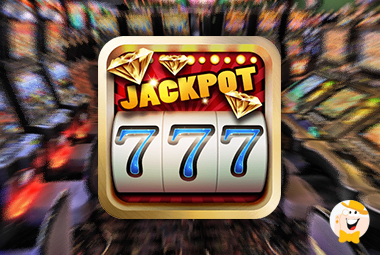
For my part, the glitch I discovered was not worth nearly as much, but it did make a Keno game with a Progressive Jackpot positive more often than it otherwise should have been. I’m not going to give out the name of the game, in case there are still any machines doing this (because I know who is out there, somewhere, playing them if they are) but there was a Keno game in which the 6/6 paid out the Progressive, but only if 6/6 or 7/7 was hit during the bonus games. This was all there pretty clearly on the rules screen, but in actuality, the game played somewhat differently:
The way it worked was that the 6/6 or 7/7 would pay out the Progressive Jackpot regardless of whether or not the hit occurred during the bonus games, though the glitch was later fixed. Again, this glitch did not result in an edge on the game right off the top, (the Progressive still had to reach a certain point for it to be advantageous) but the machine became positive much more frequently than it otherwise would have. In fact, based on what the actual rules of the game are, the Progressive would have to be at a pretty ridiculously high number to be advantageous based on the hit having to occur during bonus games.
There was recently someone on the Wizard of Vegas Forums who claimed that there are electronic Blackjack machines somewhere (he wisely did not say where, specifically) upon which a player can take Insurance. The ability to take Insurance is hardly unusual, mainly because it is normally not an intelligent decision, but this poster claims that the player can choose to either take Insurance or not take Insurance after the fact by exploiting what essentially amounts to a glitch on the game.
Other glitches have involved other situations in which a player could take advantage by pulling back bets (deleting them) after a result is known, or create manufactured losses on loss rebates by, ‘Card-pulling,’ after the result is known, but before the result of the hand is actually transmitted and applied to the player’s player club account. In that particular case, of which I will go into no further detail, the player would want the card to remain in and the result count towards the card on a loss, but the player would want to pull the card on a win. The goal, of course, being to make it look like the player lost a ton of money and take advantage of the rebate even though nothing even approaching that amount had been lost.
One other example that I can think of, and this is based strictly on third-hand knowledge, is that there was once an old Keno game that could be found in states that had no legalized casino gambling at the time, very much a backroom type game, that was extremely predictable. Why was it predictable? The reason is actually pretty simple, the machine had a certain order that the results would go in, and unplugging it, waiting a few minutes, and plugging it back in would restart the order from the beginning! Once again, I am basing this on claims that I heard from sources that I consider reputable, I have never witnessed this or anything even approaching it.
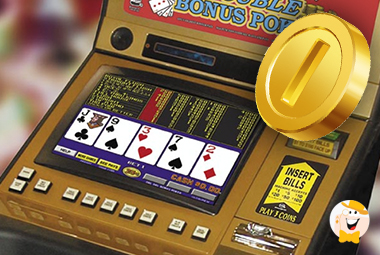
Although, if you are ever in a backroom type place where machine gambling is not legal, and you find such an old casino machine and think you can unplug it and plug it back in without being noticed...I’m just saying, I know I’ll give it a try should I ever find myself in that situation!
Conclusion:
Even though I fully appreciate and accept the fact that these kinds of machine malfunctions can occasionally work both ways, in favor of the casino or the player, I would suggest that they work in favor of the casino more often and for far greater dollar amounts. For that reason, when there is a straight-up major machine malfunction that inconveniences the player and prevents them from enjoying the game, I believe it would be a nice gesture by the casino to compensate the player with a little something. In addition to creating a player who might even be more loyal to the casino than before, it should certainly prevent the player from refusing to play there ever again, and will generate positive publicity if it does get reported.
Furthermore, why should the casinos be fundamentally completely absolved for any and all machine malfunctions whilst the players are generally taken to task for any mistakes that they make? While it is true that many Video Poker devices can be, ‘Rewound,’ in order to give the player an opportunity to correct an obvious holding mistake, that is probably not something that a player should abuse. Furthermore, even though the places are perfectly capable of doing that on several machines, they might refuse to do so. Finally, the casino is probably not going to let the player do that anymore (or kick the player out) if the player is perceived as abusing it, so the player is only going to want to correct very major mistakes, despite the fact that the small mistakes add up just as easily!
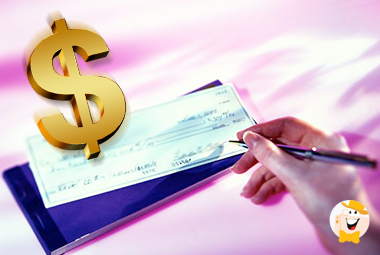
For example, if I accidentally hold something such as A-J (off-suit) on Double Double Bonus in which the other three cards are low cards of an inconsequential suit rather than holding just the Ace, it’s going to be very difficult to explain to the slot attendant why the Ace is actually the better hold and I made a mistake. If the other three cards (based on the A-J hold) are the other three Aces, then it is really going to look a lot more like I am taking a shot regardless of the fact that I would actually be telling the truth and was just playing too fast.
The bottom line is, in small ways (and occasionally potentially large) players have to suffer for their mistakes all of the time, it is very rare to play a Video Poker session of several thousand hands in a live casino without making what I will term a, ‘Button mistake,’ which is one in which you know the right hold, you just hit the wrong button. Alternatively, it could be because you missed the button, didn’t hit it hard enough or, ‘’Double-Tapped,’ it which would hold and then unhold a card. There are simply too many distractions, and when it comes to Video Poker machines that are more than a few months old, it can sometimes be tough to find one that doesn’t have any nuances at all, such as the third button has to be hit harder than you would usually hit the button. It’s also easy to become distracted by things going on around you, and therefore, make a mistake.
The fundamental rule seems to be that players are generally responsible for their own malfunctions, and that other than certain circumstances (such as obviousness) that does not void pays and plays, but the casinos are not responsible for the malfunction of their devices, nor is the testing agencies, nor the regulatory body, nor the manufacturer. I think it would definitely go a long way with players, and for the sake of good publicity, if the casino decided to take a limited amount of responsibility for faulty equipment by giving the player a little something to make it up to them. It happens so rarely that it is not going to cost the casino much, compared to what the loyalty of the player and the good publicity will bring in, and in fact, happens so rarely that it will cost most casinos nothing.






Mission146 7 years ago
7 years ago
Jade, Thanks for the comment, and for reading, as always! Yeah, the steak dinner is definitely a pointless gesture there, if it were up to me, I'd have probably offered the person a couple hundred free play, or something. I mean, it is a genuine inconvenience to have to stop playing your machine and then wait around...
Jade, Thanks for the comment, and for reading, as always! Yeah, the steak dinner is definitely a pointless gesture there, if it were up to me, I'd have probably offered the person a couple hundred free play, or something. I mean, it is a genuine inconvenience to have to stop playing your machine and then wait around to see how the whole thing gets sorted out. That Cadillac Jack machine would be a tough one not to do, I'm not going to lie. It's not like leaving the machine alone actually resolves anything, you've got a legitimate moral fork in the road where you either have to tell the attendants yourself or go ahead and take advantage of the glitch. I guess you could just leave it entirely alone, but that's pretty morally ambiguous. We also see how casinos treat malfunctions that would go against them if they were to honor what the machine says, so that makes me feel not too terribly bad about taking it once in a while if it is going to break my way.
Show morePlease enter your comment.
Your comment is added.
jade 7 years ago
7 years ago
I agree that the casino should bare some responsibility because it is their casino and those people are their patrons. I believe they call it 'good will!' The steak dinner, well, that casino may as well have shot themselves in the foot for all the good it did. It hurt more than helped the situation. I live in a state...
I agree that the casino should bare some responsibility because it is their casino and those people are their patrons. I believe they call it 'good will!' The steak dinner, well, that casino may as well have shot themselves in the foot for all the good it did. It hurt more than helped the situation. I live in a state that has these nudge machines. You know the ones, 'Cadillac Jack!" Anyway, there were about eight machines in a back room. One morning, soon after the machines were turned on, a player cashedout. The machine printed a ticket at the front of the store, at the cashier. The cashout was for $25. The cashier asked for the machine number and then counted out $500. It seemed that anytime a player cashed out, for any amount of money on that particular machine, the amount on the ticket printed was always $500. It took most of the day before someone up at the cashier caught on that something was wrong and put an out of order sign on the machine. In my opinion, that was just plain stealing! What a glitch!
Show morePlease enter your comment.
Your comment is added.